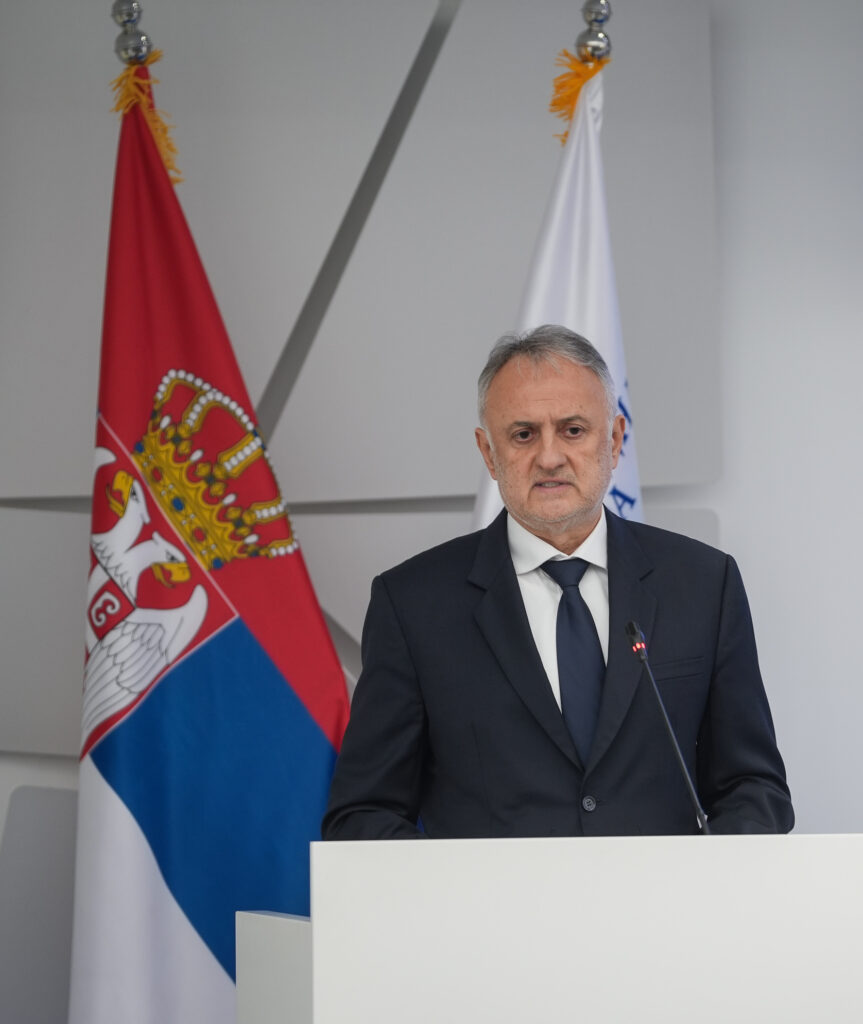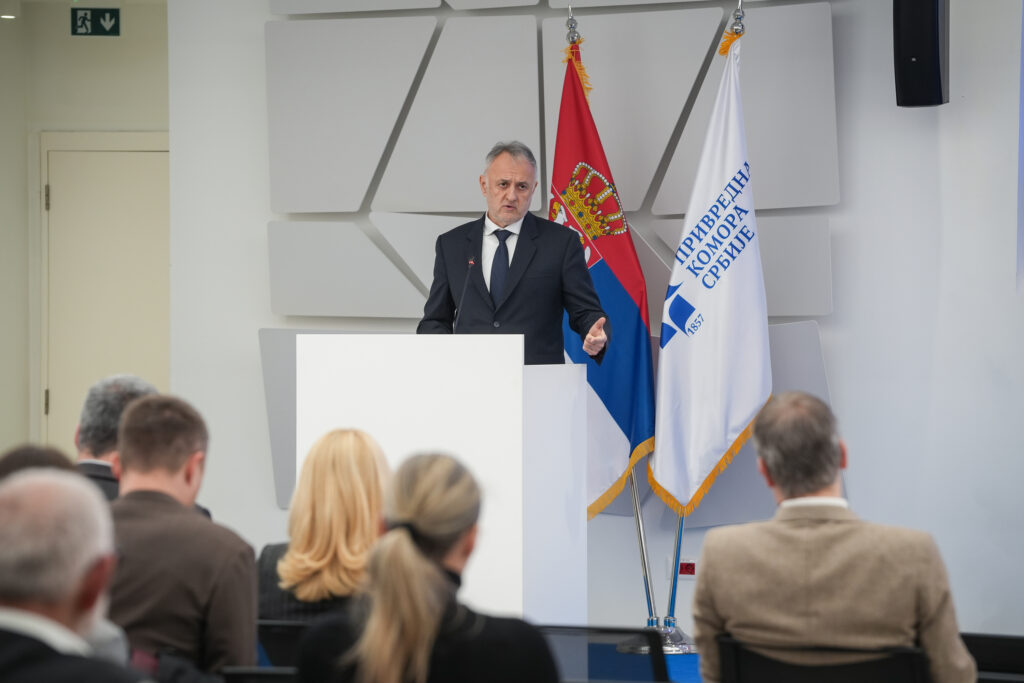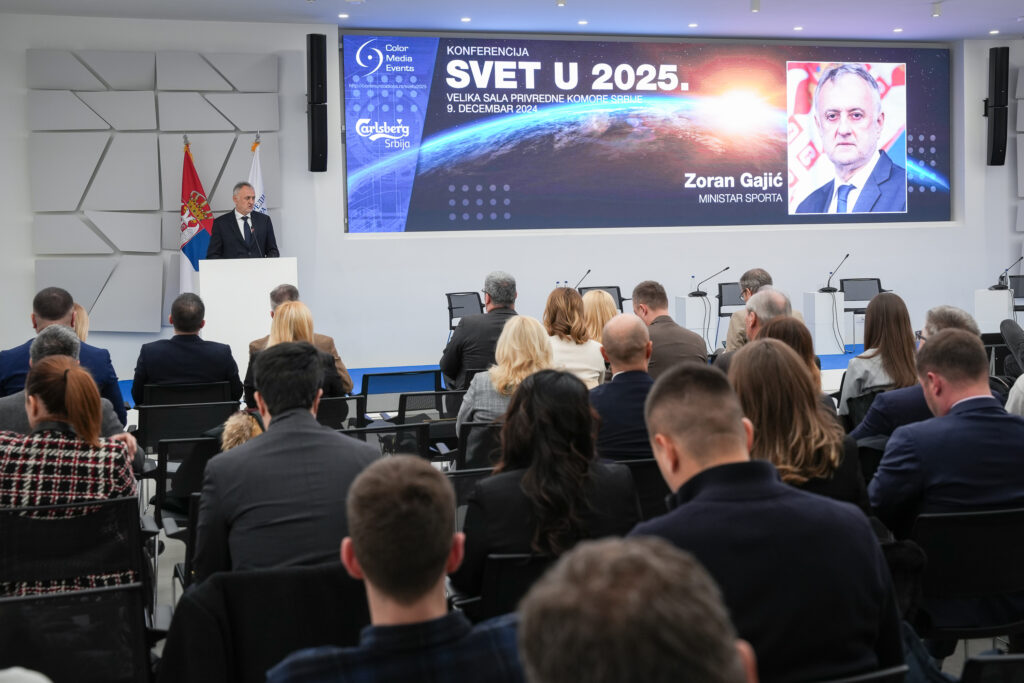Serbia’s Strategy for Sports Development and Challenges Ahead

Zoran Gajić
Minister of Sport
The Government of the Republic of Serbia
The current economic crisis is likely the worst in the past few decades. It seems to me that what is happening globally right now might even be worse than everything that occurred during the Great Depression of the 1930s. Global economic conditions have always directly influenced relationships within the sports system worldwide.
If we analyse the available data, the global economic crisis has not significantly impacted the organisation of major sporting events such as the Olympic Games or Formula 1 races. For example, it is expected that the Super Bowl (American football) will kick off 2025 with record-breaking advertising space sales. Additionally, 2025 will be a preparatory year for organising the Winter Olympic Games, which will be held in Milan, Italy, in February 2026.
Analyses and data suggest that sports with large followings outside the United States, such as football (soccer) and Formula 1 racing, will attract more attention and advertising money in 2025. Football in the US is expected to grow significantly, particularly due to the move of perhaps the world’s greatest football star, Lionel Messi, to Miami and the upcoming organisation of the 2026 FIFA World Cup, which will take place across the Americas (Canada, USA, Mexico). Speaking of Miami, it is worth noting that a Formula 1 race will also be held there in April 2025. All this data confirms the claim I have already made: the economic crisis has not and will not significantly affect the organisation of major sporting events.
On the other hand, the global economic crisis has impacted sports on a fundamental level, as it has primarily affected grassroots sports. The impoverishment of ordinary people may reduce the willingness of individuals engaged in sports to pay for sporting goods and services. This could also lead to a decrease in the contributions of volunteers working in sports. This means that sports clubs, as the fundamental units of any sports system worldwide, including ours, are under threat. The challenges of finding the right model for financing sports clubs will be one of the central topics of the future Sports Development Strategy, which the Ministry of Sports is preparing for the 2025–2035 period, along with the corresponding Action Plan.
The new Strategy for Sports Development aims to enhance participation in physical activities, focusing on children and young people while integrating innovative technologies like artificial intelligence and biomechanics
After 124 years, the Paris Olympic Games featured an equal number of male and female participants. Notably, at the second modern Olympic Games in Paris in 1900, women competed in only five disciplines. We anticipate that the global popularity of women’s sports will continue to grow, making the development and improvement of women’s sports one of the priority topics in the process of drafting our strategy. I believe that in our sports system, there should be significantly more women involved not only as athletes but also in the organisation and management of sports.
Global experts estimate that sports betting will see growth worldwide during this decade. As this practice expands, regulators and the sports betting industry are expected to continue managing the evolution of legal sports betting in 2025. The integrity of sports faces various challenges, with one of the greatest being match-fixing and illegal betting.
At the proposal of the Ministry of Sports, members of the National Assembly adopted the Council of Europe Convention on the Manipulation of Sports Competitions, also known as the Macolin Convention, about ten days ago. With this initiative, we have joined the ranks of European countries that will systematically combat the violation and protection of sports integrity, in cooperation with the Ministry of Internal Affairs and other key stakeholders. This reflects our commitment to upholding sports integrity as one of the core values established by the European Sports Charter.
 During the process of drafting the new Strategy for Sports Development in the Republic of Serbia for the period 2025–2035, we held numerous panel discussions addressing the challenges and perspectives of Serbian sports. However, one word seemed to unite all these discussions: education. Today, Serbia, which was once an “exporter” of coaching methodology and expertise, has become a country that “imports” specialists from abroad. What is happening to our sports profession, and why is it in crisis?
During the process of drafting the new Strategy for Sports Development in the Republic of Serbia for the period 2025–2035, we held numerous panel discussions addressing the challenges and perspectives of Serbian sports. However, one word seemed to unite all these discussions: education. Today, Serbia, which was once an “exporter” of coaching methodology and expertise, has become a country that “imports” specialists from abroad. What is happening to our sports profession, and why is it in crisis?
I discussed this topic with representatives of relevant National Sports Federations, local government units, territorial sports associations, and state and private higher education institutions in the field of sports. One of the greatest challenges in this regard will certainly be improving teaching, curricula, and the continuous education of coaches, incorporating artificial intelligence, machine learning, and innovations into sports practice.
I believe that artificial intelligence will become a crucial segment in advancing, progressing, and practically applying sports science in the coming years. For this reason, as the Minister of Sports, I initiated the establishment of a sector for biomechanics and biomechanical analysis within the BIO4 campus. Connecting science and sports is, in my view, a key factor in improving professional work in sports.
Additionally, I initiated a proposal for the Republic Institute for Sports and Sports Medicine to evolve into a fully-fledged sports institute. Thanks to the support of President Aleksandar Vučić, Serbian sports today boast a training centre at Košutnjak, a sector for diagnostics in sports, and a sports medicine sector that could rival those in much more economically developed countries. New stadiums have been built, an Aquatic Centre and National Volleyball Centre are under construction. The development of sports infrastructure significantly increases sports capacity, making it vital to continue such investments in the coming years.
I must highlight that Serbia today has one of the best-organised anti-doping agencies in Europe, perhaps even globally. Therefore, the integration of all stakeholders into a unified sports system is a necessary prerequisite for establishing a high-quality and sustainable sports system in the Republic of Serbia.
Despite global challenges, Serbia continues to strengthen its sports system, with investments in infrastructure and unified efforts to uphold integrity in sports, particularly in Kosovo and Metohija
Another priority of our Ministry is increasing the number of children who regularly engage in physical activities. In this regard, the new Strategy will include specifically developed measures and activities to enable a greater number of children and young people to participate more regularly in organised physical exercise, both within physical education classes and extracurricular sports activities. We will work on better connecting sports clubs, National Sports Federations, schools, and universities.
Finally, I must address what may be the greatest challenge in 2025—the position of our people, and consequently our sports, in Kosovo and Metohija. The Kurti regime has issued a decision banning all sports activities not organised by the so-called Olympic Committee of Kosovo for all sports federations and clubs not registered under the so-called Kosovo system.
 On Friday, 6 December 2024, the Ministry of Sports held a meeting with representatives of the relevant National Sports Federations, during which, with the agreement of the Office for Kosovo and Metohija, we presented seven recommendations to the federations to improve conditions for sports activities in Kosovo and Metohija. These recommendations include waiving all types of fees for clubs from Kosovo and Metohija, improving education, rewarding athletes and sports professionals, organising free training camps, and providing scholarships for the best performers.
On Friday, 6 December 2024, the Ministry of Sports held a meeting with representatives of the relevant National Sports Federations, during which, with the agreement of the Office for Kosovo and Metohija, we presented seven recommendations to the federations to improve conditions for sports activities in Kosovo and Metohija. These recommendations include waiving all types of fees for clubs from Kosovo and Metohija, improving education, rewarding athletes and sports professionals, organising free training camps, and providing scholarships for the best performers.
On the same day, the Board of Directors of the Basketball Federation of Serbia adopted all the Ministry’s recommendations to support athletes and sports professionals in Kosovo and Metohija who conduct their activities within the sports system of the Republic of Serbia.